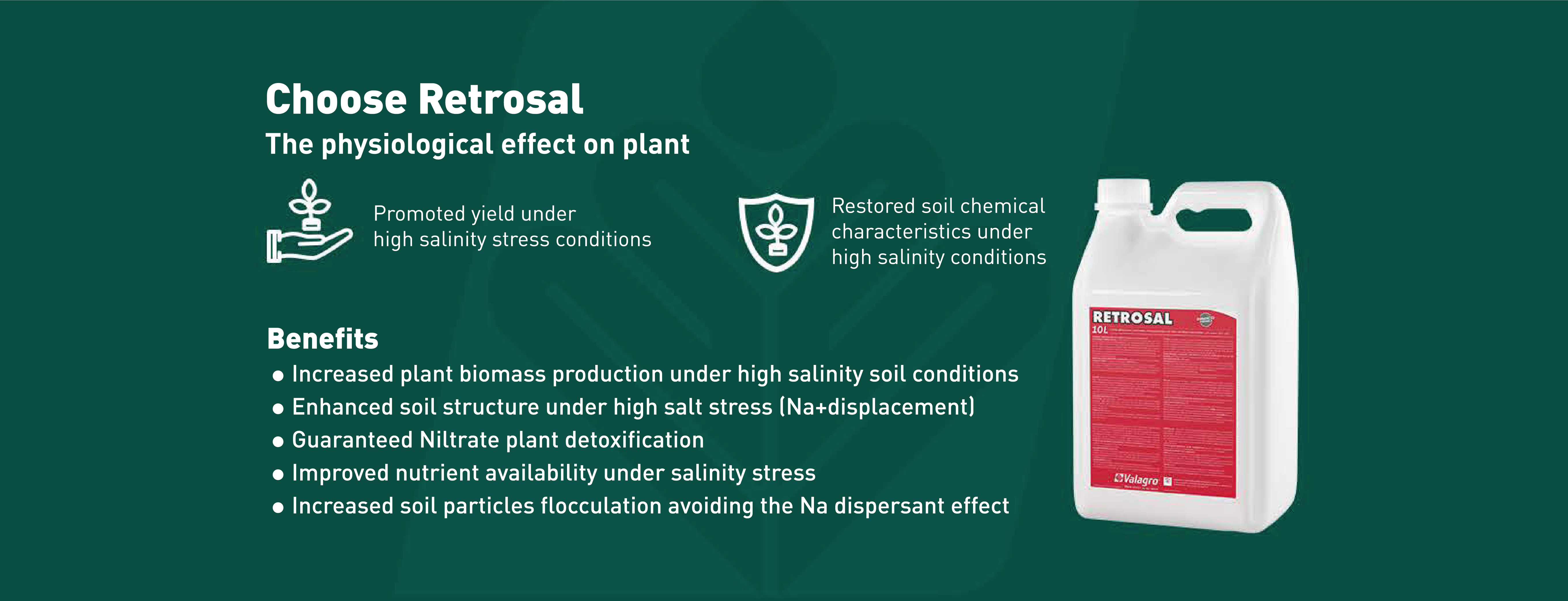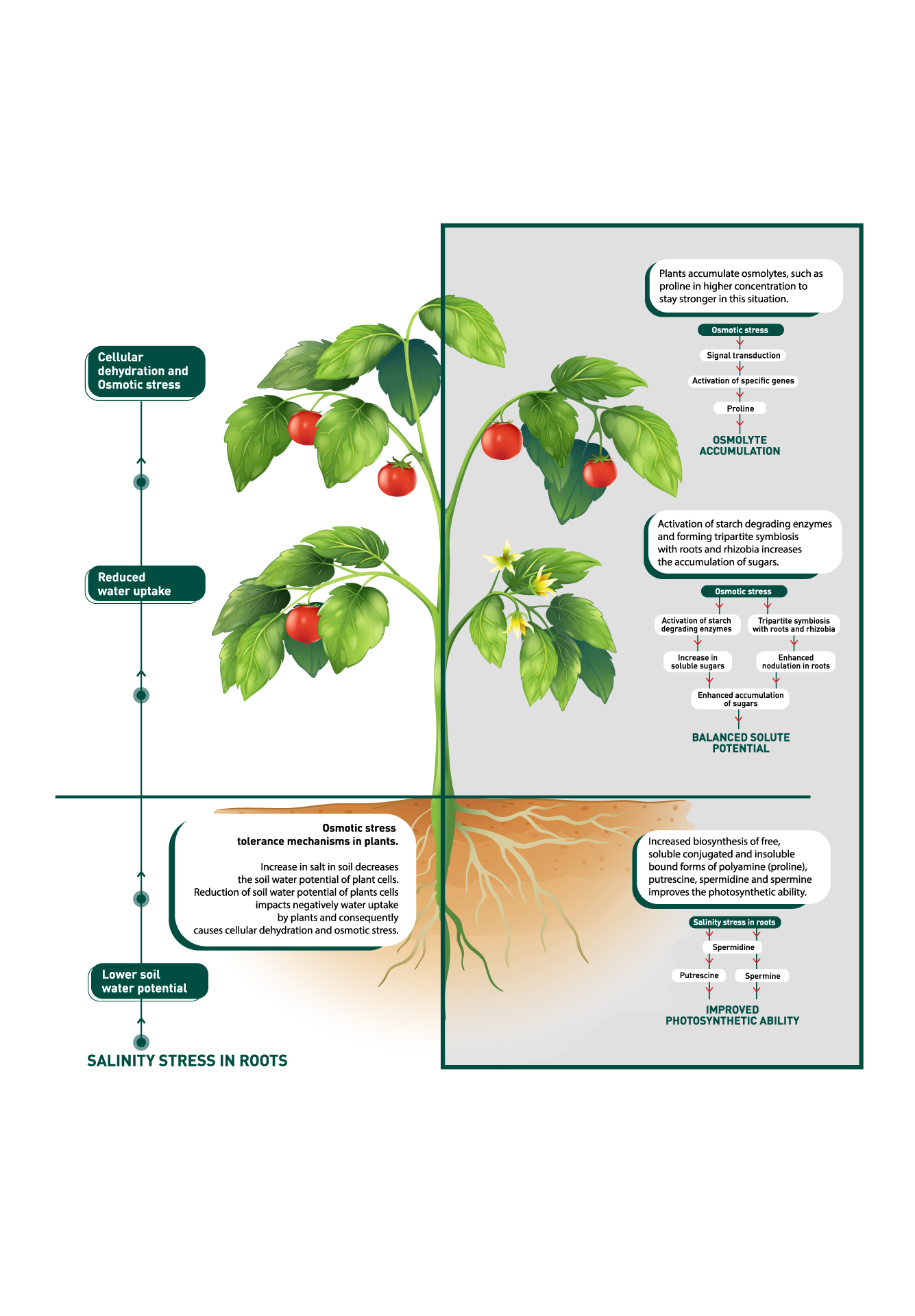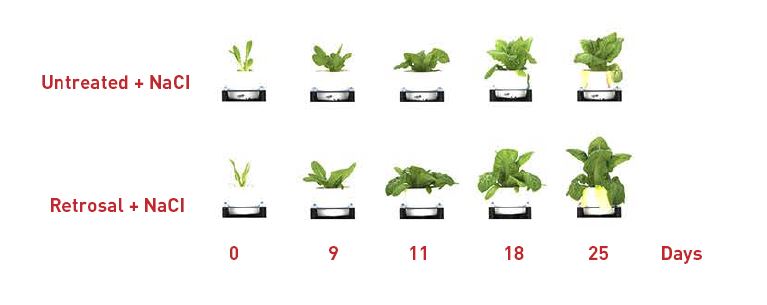
You are using an outdated browser. Please upgrade your browser to improve your experience.

You are using an outdated browser. Please upgrade your browser to improve your experience.
![]()

Salinity stress is one of the most important limiting factors for crop productivity and it is estimated that by 2050 50% of the world's arable land will be affected by salinity.
Soil salinity is associated with poor soil structure, low soil water retention capacity and excessive soil accumulation of Sodium, Chloride and Carbonates. All these aspects provoke both osmotic and toxicity stresses to plants which are usually characterized by impaired root system, low photosynthetic activity and low nutrients uptake.

Mode of action on Plant Physiology
Retrosal induces the biosynthesis of compatible osmolytes that can afford protection of cells against a variety of salinity stress, induces the biosynthesis of physical protective barriers that reduce accumulation of toxic compound, and finally improves energy pathways to support plant growth under salinity conditions.
